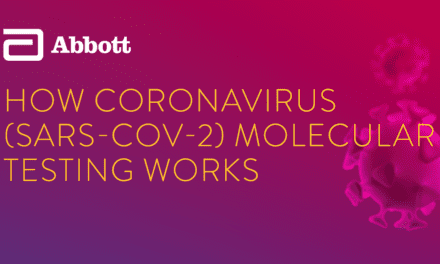Patients hospitalized for COVID had higher levels over the short term of blood proteins known to rise with neurological damage than non-COVID patients diagnosed with Alzheimer’s disease, a new study finds.
Led by researchers at NYU Grossman School of Medicine, the new study found higher levels of seven markers of brain damage in COVID-19 patients with neurological symptoms than those without them, and much higher levels in patients that died in the hospital than in those discharged and sent home.
The current report published online in Alzheimer’s & Dementia: The Journal of the Alzheimer’s Association was conducted over two months early in the pandemic. Any determination of whether patients with COVID-19 are at increased risk for future Alzheimer’s disease, or instead recover over time, must await the outcomes of long-term studies.
A second analysis found that a subset of the damage markers in patients hospitalized with COVID-19, over the short term were significantly higher than in patients diagnosed with Alzheimer’s disease, and in one case more than twice as high.
“Our findings suggest that patients hospitalized for COVID-19, and especially in those experiencing neurological symptoms during their acute infection, may have levels of brain injury markers that are as high as, or higher than, those seen in patients with Alzheimer’s disease,” says lead author Jennifer A. Frontera, MD, professor in the Department of Neurology at NYU Langone Health.
The current study identified 251 patients that, although 71 years on age on average, had no record or symptoms of cognitive decline or dementia before being hospitalized for COVID-19. These patients were then divided into groups with and without neurological symptoms during their acute COVID-19 infection, when patients either recovered and were discharged, or died.
The research team also, where possible, compared markers levels in the COVID-19 group to patients in the NYU Alzheimer’s Disease Research Center (ADRC) Clinical Core cohort, an ongoing, long-term study at NYU Langone Health. None of these 161 control patients (54 cognitively normal, 54 with mild cognitive impairment, and 53 diagnosed with Alzheimer’s disease) had COVID-19.
Three of the study markers—ubiquitin carboxy-terminal hydrolase L1 (UCHL1), total tau, ptau181—are known measures of the death or disabling of neurons, the cells that enable nerve pathways to carry messages. Levels of neurofilament light chain (NFL) increase with damage to axons, extensions of neurons. Glial fibrillary acidic protein (GFAP) is a measure of damage to glial cells, which support neurons. Amyloid Beta 40 and 42 are proteins are known to build up in patients Alzheimer’s disease.
Blood markers in the COVID patient group were measured in blood serum, while those in the Alzheimer’s study were measured in plasma.
Further, the main measure of neurological damage in COVID-19 patients was toxic metabolic encephalopathy (TME) with symptoms from confusion to coma, and caused during severe infections by toxins generated as the immune system overreacts (sepsis), kidneys fail (uremia), and oxygen delivery is compromised (hypoxia). Specifically, the average percentage increase in levels of the seven markers for hospitalized patients with TME compared to those without neurological symptoms was 60.5%. For the same markers within the COVID-19 group, average percentage increase when comparing those successfully discharged home from the hospital to those who died in the hospital was 124%.
A secondary set of findings came from comparing NFL, GFAP and UCHL1 levels in the serum of COVID-19 patients against levels of the same markers in the plasma of non-COVID Alzheimer’s patients. NFL was over the short term 179% higher (73.2 versus 26.2 pg/ml) in COVID-19 patients than in Alzheimer’s patients. GFAP was 65% higher (443.5 versus 275.1 pg/ml) in COVID-19 patients than in the Alzheimer’s patients, while UCHL1 was 13% higher (43 versus 38.1 pg/ml).
“Traumatic brain injury, which is also associated with increases in these biomarkers, does not mean that a patient will develop Alzheimer’s or related dementia later on, but does increase the risk of it,” says senior author Thomas M. Wisniewski, MD, the Gerald J. and Dorothy R. Friedman Professor in the Department of Neurology and director of the Center for Cognitive Neurology at NYU Langone. “Whether that kind of relationship exists in those who survive severe COVID-19 is a question we urgently need to answer with on-going monitoring of these patients.”




